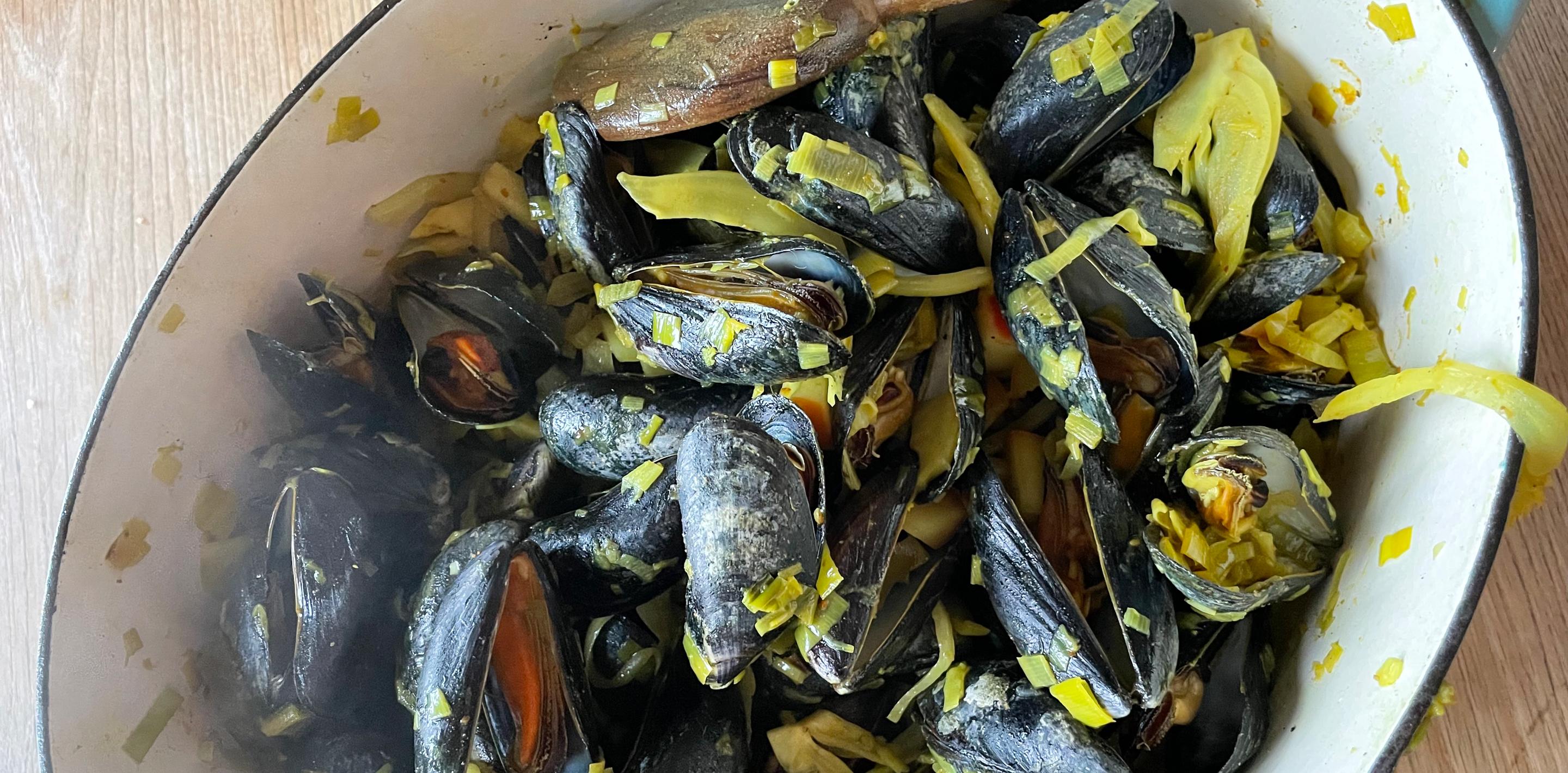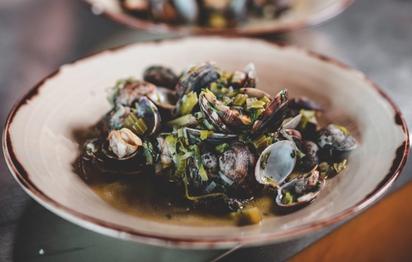
Mussels with leeks, cider and curry
Serves 3-4
1.5kg mussels
A knob of butter
1-2 tbsp rapeseed, olive or sunflower oil
A couple of garlic cloves, bashed or chopped
1 large or 2 medium leeks, finely sliced
An apple, cored and diced
1 tsp thyme leaves (optional)
1 bay leaf (optional)
1 tbsp curry powder
250ml cider (or apple juice, or both)
2 tbsp coconut milk or double cream (optional)
Freshly ground black pepper
Lots of chopped parsley, to serve
Give the mussels a quick rinse and a shake - you can remove any wiry little 'beards' that are attached to the shells, but it’s not vital as you can pick them off even more easily when you eat them. Discard any open mussels that don't close when given a sharp tap.
Place a large saucepan over a medium heat and add the butter and oil. When the butter is foaming, add the garlic, leek, thyme, bay leaf and apple. Cook for 2–3 minutes, until the leek softens a little. Turn the heat up high, pour in the cider and bring to the boil. Stir in the mustard, then tip in the mussels and place a lid on the pan.
Steam the mussels for 2–3 minutes, giving the pan a good shake once or twice. Check the mussels and if they are almost all open they are good to go. If not, stir well, replace the lid and give them another minute. When the mussels have nearly all opened (discard any that remain firmly shut), stir in most of the parsley and the cream if using (it enriches the liquor of course, but it’s still delicious without it).
Season with pepper and serve in deep bowls, ladling out any liquor left in the pan. Scatter over the rest of the parsley and accompany with plenty of good bread – ideally sourdough – for dipping in the liquor.
For more River Cottage mussel recipes, click here
Learn more and get confident with fish and shellfish

Tackling fresh fish takes confidence, knowledge and technique. It can seem a daunting task, but in this course Gelf will guide you through the skills you need. Once you’ve learned the techniques and practised it yourself you will finish the course feeling confident in your ability to cook fish and shellfish at home.
You will be introduced to varieties of fish seasonally available, updated on current sustainability guidelines and given advice on how to shop for the freshest fish. You will learn the basics of fish preparation including gutting, scaling and filleting three types of fish – flat, round and oily – with a particular focus on knife skills. And you will learn a variety of techniques including pan-frying, baking and stewing plus creating stocks and broths and a number of delicious recipes.
